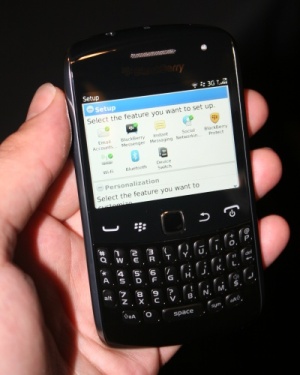RIM explains BlackBerry downtime as outage spreads

The latest BlackBerry messaging and browsing outage is the result of a core switch failure in RIM's infrastructure, the company has admitted as the incident continues to spread around the world.

A second outage on messaging and browsing services is continuing to affect users of RIM's BlackBerry handsets. Photo credit: Ben Woods
The disruption to RIM's BlackBerry Internet Services (BIS) is affecting not only the EMEA region — as did an outage that ran from Monday morning to the early hours of Tuesday — but also India and swathes of South America, RIM has confirmed.
Multiple comments across service forums, RIM's Facebook page and Twitter also suggest that the outage has extended as far as RIM's home country of Canada, although the company has not confirmed this. Operator Vodafone Egypt has told customers that the problem has gone global.
"The messaging and browsing delays being experienced by BlackBerry users in Europe, the Middle East, Africa, India, Brazil, Chile and Argentina were caused by a core switch failure within RIM's infrastructure," RIM said on Tuesday evening.
"Although the system is designed to fail over to a back-up switch, the failover did not function as previously tested. As a result, a large backlog of data was generated, and we are now working to clear that backlog and restore normal service as quickly as possible," the company explained, apologising for any inconvenience and promising to "continue to keep you informed".
Telecoms analyst Dean Bubley said the problem could lie in the way RIM "siphons off" all internet traffic to and from BlackBerry handsets for optimisation purposes, without allowing fallback to normal internet peering points in the event of RIM's systems going down.
"RIM routes all data traffic via its servers and network infrastructure, [creating a] single point of failure," Bubley told ZDNet UK. "It does lots of good things — it compresses data a lot, adds security, manages email connections, [enables] BBM and so on — but it also routes the 'vanilla' web traffic through that path as well."
Serious outage
RIM has yet to explain the serious outage that struck BlackBerry services on Monday — an incident that ended just hours before the second one began. It took RIM three hours to acknowledge that the second outage was taking place at all.
It is not clear whether the same fault caused both spells of downtime. A glance at O2 UK's service status page suggests the operator is treating the two as a single incident. The Twitter stream for Vodafone Egypt contains multiple apologies to customers, repeatedly explaining that RIM's systems are suffering a "global problem" and the operator is awaiting feedback from the handset company.
T-Mobile UK, meanwhile, used Twitter to inform its customers it will not compensate them for the loss of service "as this is a BlackBerry issue". The operator's status page urges affected customers to contact RIM via that company's website.
As for RIM's official customer support pages, there are multiple threads full of complaints about the downtime, as well as some suggesting that RIM's signing server is also down. This server, which is essential for BlackBerry developers, suffered a major outage in July.
All this comes at a precarious time for RIM's management. The company is losing market share to Apple's iOS and the Google's Android system, and the merchant bank Jaguar Financial, an investor in the Canadian firm, is campaigning to have RIM broken up or sold off.
According to Reuters, Jaguar, which wants co-chief executives Jim Balsillie and Mike Lazaridis out, said on Tuesday that it has the support of eight percent of RIM's shareholders for its plans — enough to demand a shareholders' meeting about the matter.
Get the latest technology news and analysis, blogs and reviews delivered directly to your inbox with ZDNet UK's newsletters.